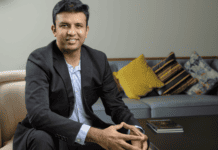
Chances are, if you are running a business, you will regularly stumble upon risks (which could be market upheavals, data breaches, or the unexpected pitfalls of product placements). The real conundrum isn’t whether risk will rear its head, but how businesses face the heat.
Given that it’s a daily hazard of being an entrepreneur, you might as well start considering your business’s risk appetite.
But first, what does it mean?
Risk appetite demonstrates the balance between risk and success for businesses. While excessive risk can harm an organization, being overly cautious is equally detrimental. It’s not just about tolerating risk without financial consequences; it’s about acknowledging the value of taking moderate risks to fuel long-term growth.
Let’s take a look at some of the businesses that have thrived due to their willingness to take risks:
Microsoft:
With the release of the Xbox in 2001, Microsoft made a bold leap into the gaming world, entering a market controlled by Sony’s Playstation. Despite a track record of failures, particularly in the field of mobile devices, the tech giant increased its marketing efforts for the console. Today, the Xbox has branched out beyond gaming into the areas of OTT television and video streaming.
Twitter:
When Facebook proposed a $500 million takeover deal in 2008, it was a turning point for Twitter. Twitter hasn’t been able to generate expected revenues despite a growing user base. Surprisingly, the social network turned down the offer back then. While Twitter managed to integrate itself into our daily lives, the jury is still out on whether rejecting Facebook’s offer was a good bet.
Google:
Back in the early days, Google didn’t exist. Its co-founders, Larry Page and Sergey Brin, conceived the company during their time as PhD students at Stanford University. Frustrated by the demands, they contemplated abandoning the venture due to its consuming nature. In a pivotal moment, Page almost sold Google in 1997 for a mere $1.5 million. Fast forward to 2006, Google made a move that baffled many by acquiring a fledgling video platform, YouTube, when its potential wasn’t widely recognized. That decision changed the tech scene, solidifying Google’s dominance and leaving an indelible mark on history.
FedEx:
FedEx founder Fred Smith faced a critical juncture when the company was refused a necessary business loan needed to settle an urgent gas bill. As a result, Smith took issues into his own hands. He traveled to Las Vegas with $5,000 in the hopes of raising the required capital to keep the company running.
PayPal:
PayPal, which was founded in 1998 as Confinity Inc., never started as the online payment giant that it is today. PayPal, which was initially focused on encryption and then money transmission via PDAs, went through several business model revisions before finding its footing.
PayPal’s success was dependent on its ability to adapt. Unafraid of rebranding, the company adapted until it was bought out by eBay for $1.5 billion in 2002. When confronted with significant fraud issues in 2001, PayPal approached them as a risk management challenge, navigating through and overcoming these threats.
Tesla:
The Tesla factory in Fremont, California, has unusual origins. Tesla Motors, which was founded in 2003, went a decade without making a profit before making its first in 2013. Nonetheless, the path to success was fraught with near-collapses. In 2008, despite a stagnating US economy, the company teetered on the brink of failure, barely surviving thanks to Elon Musk’s audacious commitment of his final $35 million.
Musk’s risk-taking paid off. Tesla Motors, which is currently valued at almost $50 billion, is a monument to his measured risk. Despite efforts to secure consistent quarterly earnings and setbacks, most notably the 2015 $3.5 billion loss following the launch of the Model X, the business remains committed to transforming the electric automobile industry. Notably, Tesla’s Model S became the world’s best-selling plug-in car in 2015.
Read more: Why Do Businesses Often Price Their Products Ending in 9?







